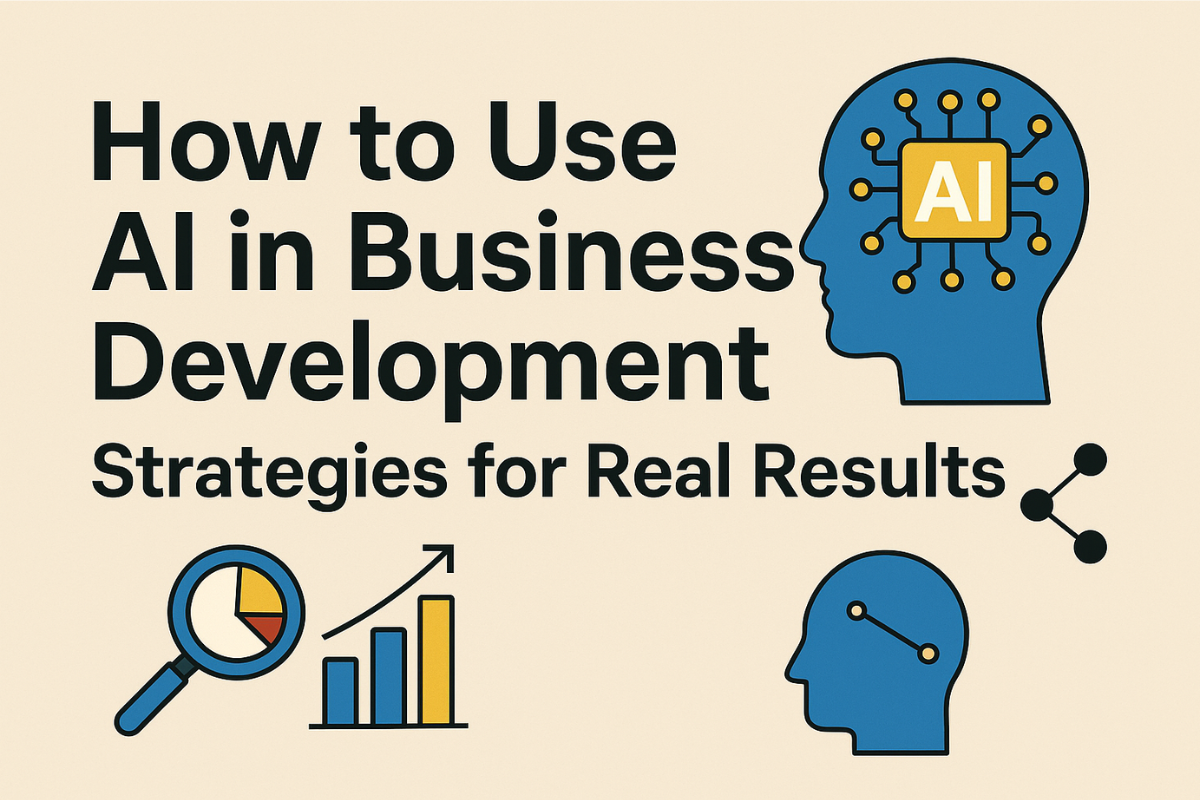The healthcare industry now experiences artificial intelligence (AI) as an active transformation of patient care which reaches its peak in 2025. AI technologies enhance both medical accuracy and surgical efficiency and treatment outcomes through various disease-detection applications and robotic surgical procedures. Medical data growth necessitates the involvement of artificial intelligence technology which assists professionals to make both quicker and wiser decisions. Learn how AI is Transforming healthcare in 2025 with smarter diagnostics, personalized care, robotic surgeries, and predictive tools for better patient outcomes.
Table of Contents
ToggleThe Rise of Artificial Intelligence in Healthcare
Research in machine learning and deep learning throughout multiple years has led to healthcare AI reaching its full maturity level in 2025. The world has executed a dramatic shift toward AI and this transition brings actual clinical improvements.
Key AI Innovations in the Medical Field:
Innovations in AI technology now enable algorithms to identify illnesses sooner than ever before while AI chatbots provide round-the-clock health support and AI-supervised systems use patient records to develop individual treatment plans. It’s not science fiction, it’s now.

How AI Is Transforming Healthcare in 2025
1. AI in Medical Imaging and Diagnostics
AI-powered diagnostic tools are now essential in radiology, pathology, and dermatology. These tools analyze X-rays, MRIs, and scans faster and more accurately than humans.
Faster and More Accurate Diagnosis:
The analysis of thousands of images using AI systems takes only seconds to detect abnormalities beyond human capabilities. AI systems will assist medical professionals by providing precise interpretations of X-ray and MRI and CT scan results in the year 2025.
AI in Radiology, Pathology & Imaging:
Radiologists no longer work alone. AI enhanced diagnostic tools enable medical professionals to receive faster review of images combined with immediate alerts for early detection of problems. Artificial intelligence shows patterns to human observers which they would not normally detect including small tumors alongside unusual pathological findings.
Key Benefits:
- Early detection of diseases like cancer and pneumonia.
- AI algorithms reduce diagnostic errors.
- Real-time image analysis speeds up treatment decisions.
2. Predictive Analytics for Disease Prevention
Machine learning models in 2025 are helping predict patient risks by analyzing massive datasets from electronic health records (EHRs), wearables, and genetic data.
AI and Genomic Medicine:
The software uses genetic analysis to come up with exact treatment plans for each patient. Through AI, healthcare providers can give targeted treatments that lower side effects mainly in oncology and rare diseases.
Adaptive Treatment Based on Real-Time Data:
The continuous collection of patient information happens through mobile applications and wearable devices. The data collection enables AI systems to modify treatment protocols instantaneously which results in flexible care plans.
How It Helps:
- Identifies high-risk patients before symptoms appear.
- Assists in managing chronic conditions like diabetes and heart disease.
- Enables proactive rather than reactive care.
3. AI-Powered Virtual Health Assistants and Chatbots
Microcomputers that use natural language processing support both healthcare providers and patients. The AI tools perform the functions of appointment booking as well as prescribe medication reminders alongside symptom assessment capabilities.
AI in Patient Interaction:
The virtual assistant functions like Siri or Alexa with education in nursing. Virtual assistants that utilize NLP provide medical response to health inquiries and appointment coordination together with medication reminder services along with basic symptom assessment features.
Reducing Administrative Burdens:
Healthcare professionals receive more essential time because AI chatbots perform duties such as medical billing and appointment management and insurance verification tasks.
Popular Examples:
- AI chatbots for mental health support
- Voice assistants designed for older people
- 24/7 virtual triage tools
4. AI in Drug Discovery and Development
Pharmaceutical companies are fast-tracking R&D with AI by analyzing billions of compounds and simulating drug reactions.
Faster Drug Testing and Trials:
AI technologies enable drug testing and trial procedures that previously required years to finish during the course of months. Through simulation of numerous chemical processes artificial intelligence lets scientists recognize great potential drugs at a notably accelerated rate.
Predictive Modeling in Pharmaceutical Research:
Artificial Intelligence helps pharmacologists to forecast drug responses across various patient groups which enhances safety alongside process speedup and cost efficiency.
AI in Pharma:
- Shortens drug development timelines
- Identifies new drug candidates faster
- Predicts side effects using simulation models
5. Predictive Analytics in Preventive Care
Forecasting Illness Before It Strikes:
AI monitors patterns in:
- Blood pressure
- Heart rate
- Sleep quality
- Step count
- Blood oxygen
If trends show elevated risk, AI sends alerts to doctors and patients before symptoms even appear.
Preventing Chronic Diseases
Chronic conditions like heart disease or diabetes are now caught in early stages through smart tracking systems, wearables, and AI predictions.
6. AI in Robotic Surgeries: Precision Without Fatigue
Smart Surgical Robots
Surgical robots which use AI guidance currently perform the following functions:
- Make micro-precise movements
- Reduce surgical bleeding
- Shorten recovery time
- Real-time 3D organ mapping is available as a function of the system
These robots deliver maximum benefit during procedures involving the heart, brain, and spinal cord.
AI in Surgical Planning and Follow-Up
Using medical background information AI establishes operational plans for the procedures. The system monitors post-operative patient recovery in order to detect medical problems at an early stage.
7. Medical Imaging and AI: Seeing the Invisible
Deep Learning in Radiology
AI improves:
- Image contrast and clarity
- The system detects both microfractures alongside hidden tumors.
- Accuracy of pathology reports
Radiologists dedicate their time to reviewing challenging cases because AI manages the routine tasks.
Eye Care, Dermatology, and Beyond
Modern AI systems use training to recognize specific conditions in three medical areas.
- Retinal damage
- Skin cancer
- Using a smartphone camera in combination with an app enables remote area residents to access diagnostic testing for wound infections.
8. Revolutionizing EHR Systems with AI
Smarter, Cleaner, Faster Records
AI extracts relevant data from unstructured notes and organizes them into structured fields in seconds.
Benefits:
- Less time on admin tasks
- More face time with patients
- Fewer human errors
Clinical Decision Support
AI flags unusual symptoms, suggests next steps, and prevents duplicate prescriptions. It acts as a real-time advisor during patient visits.
9. Natural Language Processing (NLP) in Medicine
Making Sense of Medical Text
NLP helps:
- Transcribe voice notes from doctors
- Scan research papers for treatment options
- Generate discharge summaries
- Interpret patient-written symptoms
It bridges the communication gap between human language and clinical data.
AI for Language Translation in Multilingual Healthcare
AI interpreters powered by NLP allow real-time doctor-patient conversations in different languages, eliminating miscommunication in diverse populations.
10. Remote Monitoring and AI-Driven Telehealth
Wearable Health Devices with AI
Smartwatches and health bands now monitor:
- Blood pressure
- Glucose
- Sleep quality
- Oxygen levels
AI interprets this data and alerts both patients and doctors about abnormalities.
AI in Virtual Consultations
During telehealth visits, AI provides live support by suggesting diagnoses, checking history, and generating summary notes in real time.
Ethical, Legal, and Privacy Concerns in AI Healthcare
Ensuring Transparency and Fairness
Bias in algorithms can be deadly. That’s why 2025 AI tools must:
- Use diverse datasets
- Be open to audits
- Explain their decision process
Data Protection Standards
AI must comply with HIPAA, GDPR, and new health-tech privacy laws. Techniques like differential privacy and federated learning are commonly used.
Conclusion
People no longer encounter Artificial Intelligence as a future promise since it has become a reality today. AI will transform healthcare systems to operate as personalized and preventive and accurate delivery of care by 2025. Real-time data combined with predictive analytics together with human compassion through AI technology delivers improved healthcare results at accelerated treatment rates to all patients needing access to care. Using this technology demands caregivers to create systems that will guarantee ethical approaches with unbiased treatment delivered at a patient-centric level. We currently live in an intelligent future.








